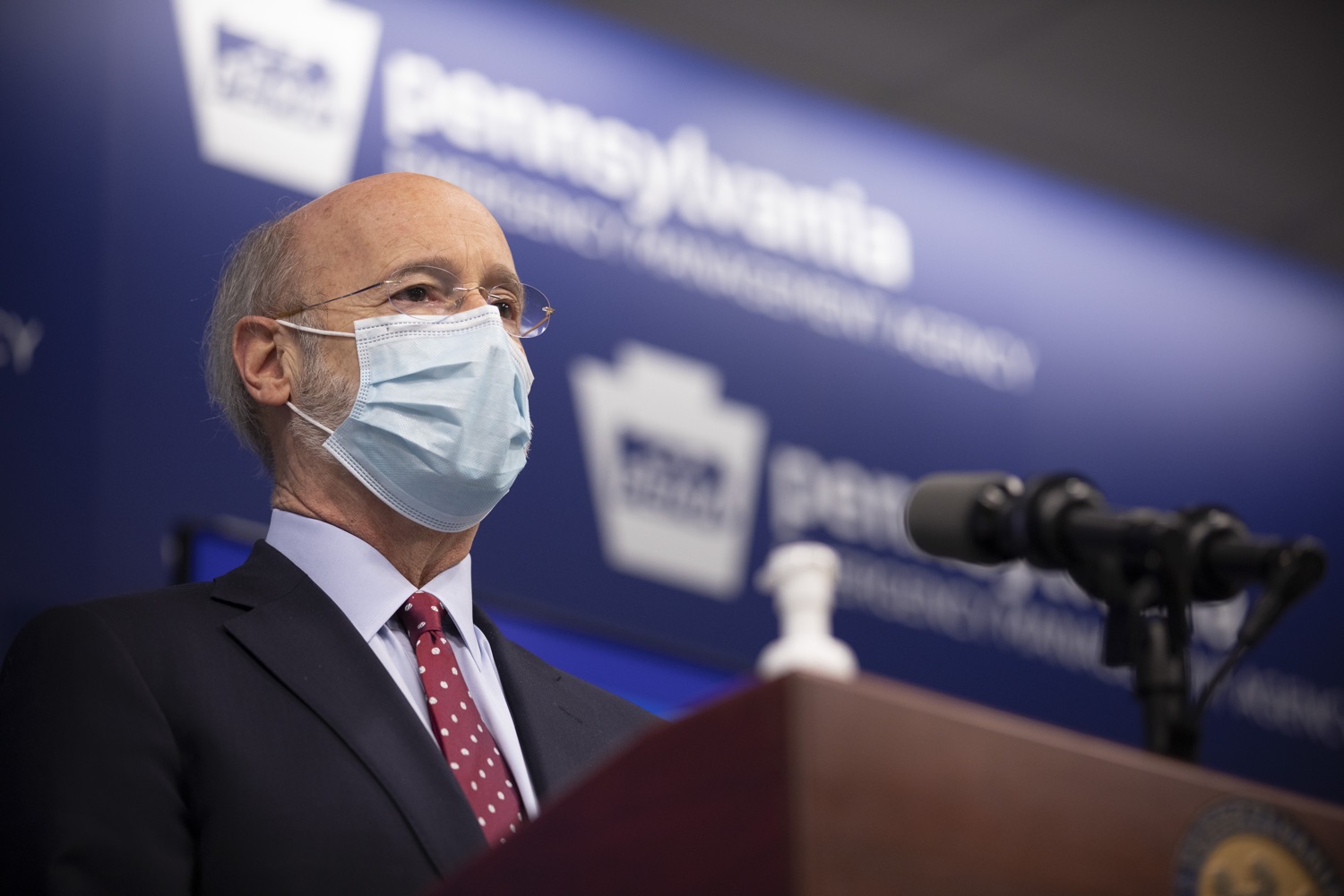
Gov. Tom Wolf outlined his 2021 agenda on Thursday, saying "major targeted investments" are needed to help Pennsylvanians recover from the coronavirus pandemic.
His briefing Thursday comes shortly before his budget address, which will take place in February. The governor said that before he and the legislature start wrangling over dollar figures, "I want to take a step back and talk about what we need to accomplish."
Wolf acknowledged there are "a lot of unknowns" in the state's fiscal outlook. Still, he downplayed concerns that pandemic-driven falloffs in revenue might necessitate tax increases or sharp cutbacks in service.
His budget calls for a severance tax on natural gas fracking and the legalization of marijuana, which would be taxed. Those sources, plus significant aid expected from the federal government, should allow Pennsylvania to accomplish what it needs to while balancing the budget, Wolf said.
Wolf's agenda
Among Gov. Tom Wolf's proposals for 2021:
- Increase the minimum wage from $7.25 an hour to $12, with a path to $15;
- Use $145 million from workers compensation fund reserves to assist businesses hurt by the pandemic;
- Reduce the corporate income tax and end the Delaware loophole;
- Dramatically bolster the state's workforce development programs to help workers laid off during the pandemic find new jobs;
- Legalize recreational marijuana
- Strengthen Pennsylvania's clean-government laws
- Build on Pennsylvania's election reforms by allowing ballots received by mail to be prepared for counting before Election Day, and combating voter intimidation by banning firearms from all polling places.
Responding to reporters' questions, Wolf applauded the state Senate's passage on Wednesday of a $912 million pandemic relief package, saying, "They're really moving in the right direction."
The legislation includes $145 million in aid to restaurants and family businesses, which Wolf has been pushing for, and $570 million for rental and utility assistance.
The Senate's bill heads to the state House next for consideration.
Pennsylvania's fiscal year runs from July 1 to June 30. In 2020-21, due to the pandemic, the state enacted a $25.8 billion stopgap budget, following up in November with an $11 billion budget covering the remainder of the fiscal year.





